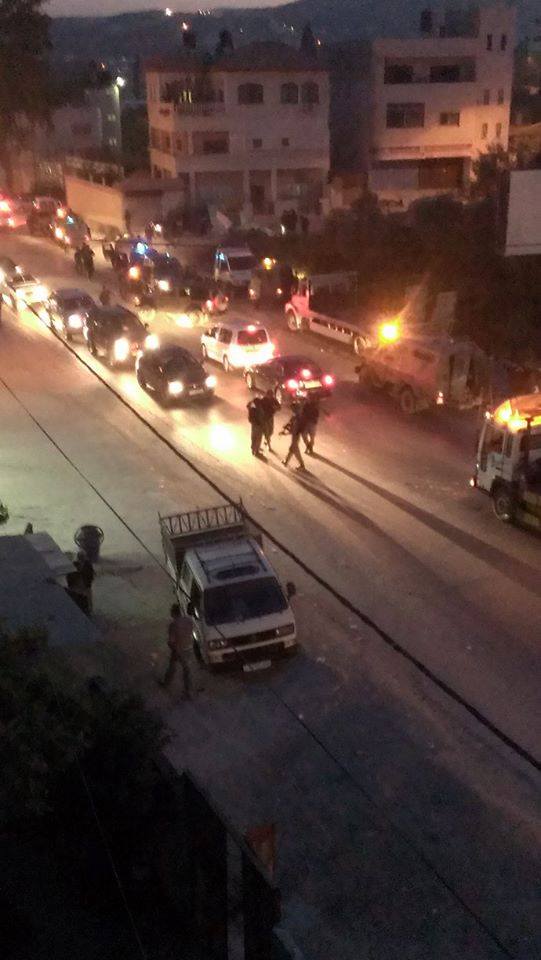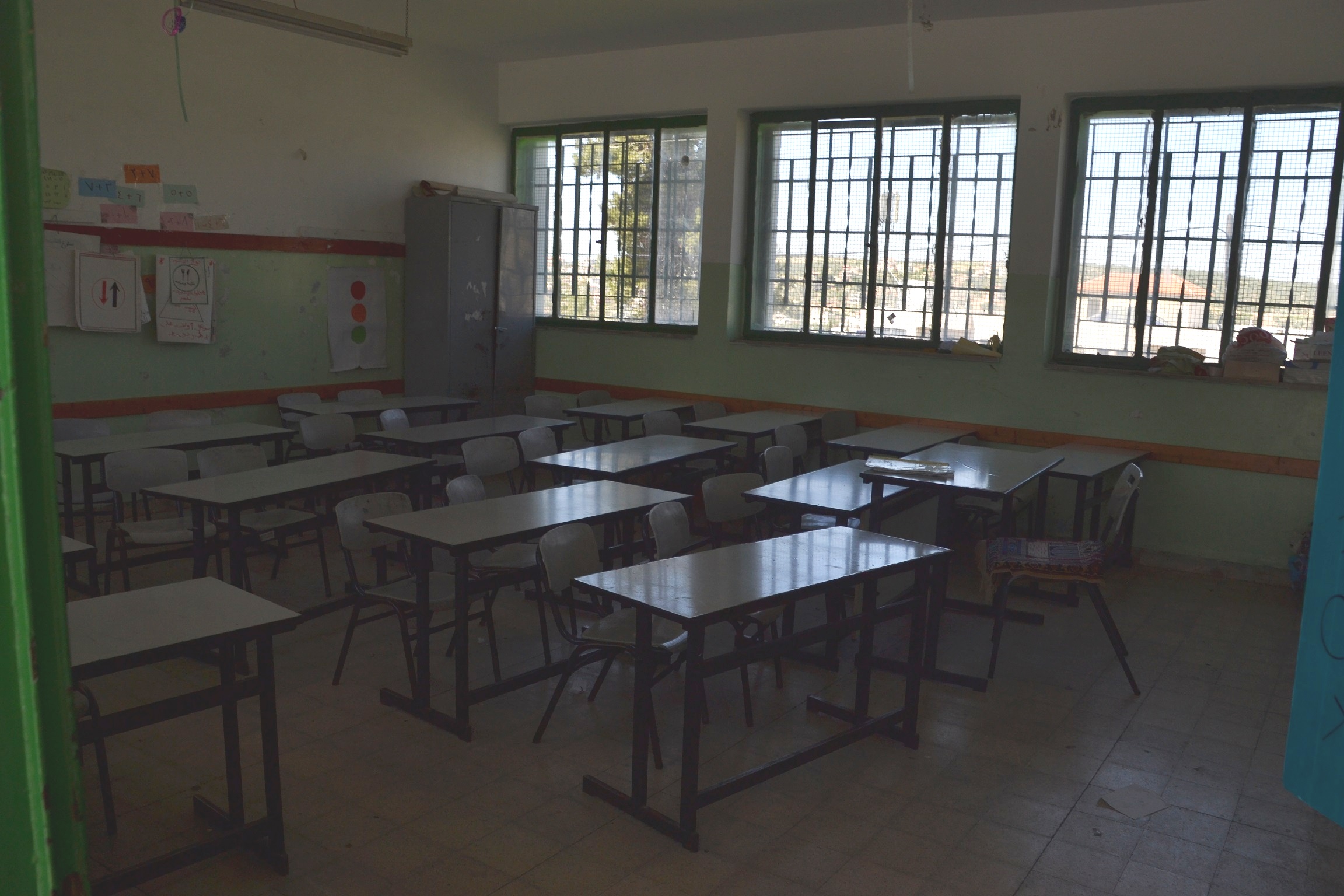Category: Nablus
-
One man shot and arrested by Israeli Border Police in Huwwara village
10th April 2014 | International Solidarity Movement, Nablus Team | Huwwara, Occupied Palestine On Sunday 6th of April, a 35-year-old Palestinian man was shot with live ammunition and then arrested by an Israeli Border Police Officer. This was after the man had thrown a Molotov cocktail against a passing military jeep on the main street of Huwwara,…
-
Settler shoots Palestinian as he tries to repair his car
9th April 2014 | International Solidarity Movement, Nablus Team | Urif, Occupied Palestine On Sunday 30th March on the road to Madama (near Nablus), 25-year-old Nidal, from the village of Urif, was fixing his car when a settler with a handgun shot him in the leg. 12 years ago, in the same area, Nidal and two…
-
Israeli army attacks two elementary schools in Salfit
7th April 2014 | International Solidarity Movement, Nablus Team | Salfit, Occupied Palestine Two educational institutions were attacked with tear gas and stun grenades by the Israeli army yesterday morning in Salfit. At least ten female students required medical attention after suffering from excessive tear gas inhalation. At 12:30 yesterday afternoon, Salfit’s female elementary school was empty.…



